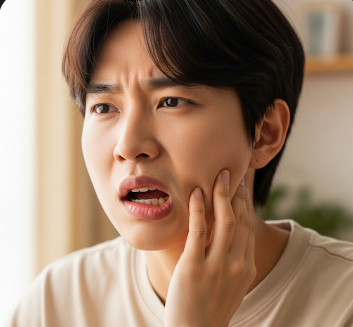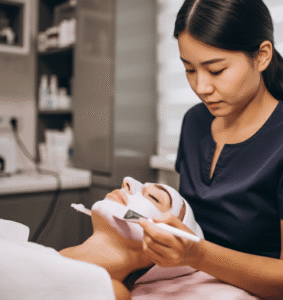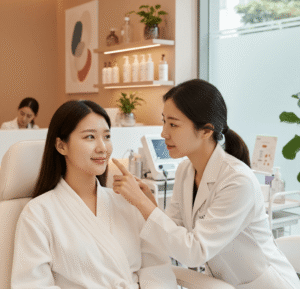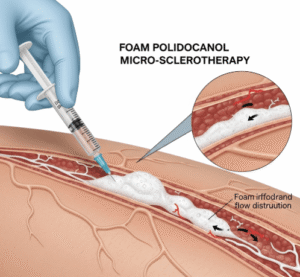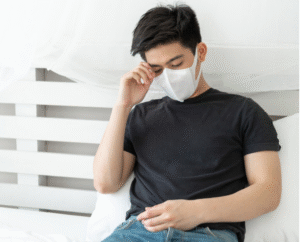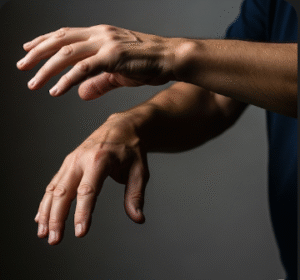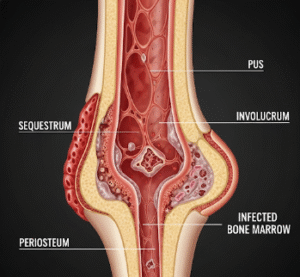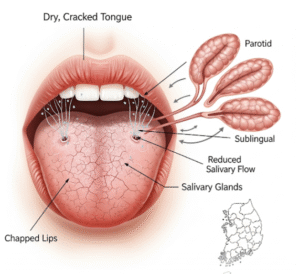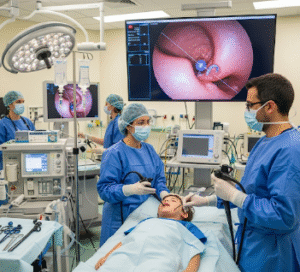Overview
Jaw popping, also known as crepitus of the temporomandibular joint (TMJ), is a condition characterized by clicking, popping, or grating sounds when opening or closing the mouth. While it can occur occasionally in healthy individuals, persistent or painful jaw popping may indicate TMJ disorders, misalignment, or joint dysfunction.
In Korea, dental and maxillofacial clinics provide advanced evaluation and treatment for jaw popping, combining imaging, physical therapy, and specialized interventions. Early diagnosis can prevent progression, alleviate discomfort, and restore normal jaw function.
Key Facts
- ➔ Jaw popping can occur in people of all ages but is most common in adults aged 20–40.
- ➔ It is often associated with temporomandibular joint (TMJ) disorders.
- ➔ Symptoms may include jaw pain, stiffness, limited movement, or headaches.
- ➔ Causes include joint misalignment, disk displacement, arthritis, or muscle tension.
- ➔ Treatment ranges from lifestyle modifications to minimally invasive procedures, depending on severity.
What is Jaw Popping?
Jaw popping refers to audible sounds produced by the temporomandibular joint (TMJ) during jaw movement. The TMJ connects the jawbone to the skull and allows movements necessary for chewing, speaking, and yawning.
- ➔ Clicking: A sudden, sharp sound, often due to displacement of the articular disc.
- ➔ Grinding or popping: May result from irregular joint surfaces or muscle tension.
- ➔ Benign vs. pathological: Occasional popping without pain is usually harmless, while persistent popping with discomfort may indicate TMJ dysfunction.
- ➔ Underlying causes: Misalignment, arthritis, trauma, bruxism (teeth grinding), or muscle overuse.
Understanding the nature and cause of jaw popping is crucial for selecting the appropriate treatment.
What Symptoms Are Related To
Jaw popping may be associated with a variety of symptoms:
- ➔ Audible clicking, popping, or grating sounds during jaw movement
- ➔ Jaw pain or tenderness around the TMJ
- ➔ Limited or restricted jaw movement
- ➔ Headaches or facial pain, often radiating to the temples or ears
- ➔ Ear discomfort or tinnitus (ringing in the ears)
- ➔ Muscle fatigue or stiffness in the jaw, neck, or shoulders
Identifying these related symptoms helps distinguish benign joint noises from pathological conditions requiring medical attention.
What Causes / Possible Causes
Jaw popping may result from joint, muscle, dental, or systemic factors:
- ➔ Temporomandibular joint disorders (TMD): Displacement of the articular disc or inflammation of the joint.
- ➔ Bruxism (teeth grinding): Causes stress and wear on the TMJ.
- ➔ Joint misalignment: Malocclusion or uneven bite placing pressure on the TMJ.
- ➔ Arthritis: Osteoarthritis or rheumatoid arthritis affecting the TMJ surfaces.
- ➔ Trauma or injury: Accidents or blows to the jaw.
- ➔ Muscle tension: Overuse of jaw muscles from chewing, talking, or clenching.
- ➔ Connective tissue disorders: Conditions like Ehlers-Danlos syndrome can cause joint hypermobility and noise.
Accurate diagnosis is essential to differentiate between benign popping and conditions that could lead to chronic pain or dysfunction.
When Should I See My Doctor
Medical consultation is recommended if jaw popping is:
- ➔ Persistent or worsening over time
- ➔ Accompanied by pain, swelling, or restricted movement
- ➔ Associated with headaches, ear pain, or tinnitus
- ➔ Interfering with chewing, speaking, or daily activities
- ➔ Following trauma or injury
- ➔ Linked to systemic symptoms such as fever, redness, or warmth in the joint
Early evaluation helps prevent chronic TMJ disorders and ensures targeted treatment.
Care and Treatment
Management of jaw popping depends on the underlying cause, severity, and patient needs:
- ➔ Lifestyle adjustments: Avoid excessive chewing, gum chewing, or hard foods.
- ➔ Jaw exercises: Gentle stretching and strengthening exercises guided by a physical therapist.
- ➔ Pain relief: Over-the-counter anti-inflammatory medications or analgesics.
- ➔ Dental interventions: Correcting malocclusion, bite alignment, or using occlusal splints (night guards).
- ➔ Minimally invasive procedures: Corticosteroid injections, arthrocentesis, or Botox therapy in severe cases.
- ➔ Surgery: Rarely required; indicated only for structural joint problems or trauma.
- ➔ Stress management: Relaxation techniques to reduce muscle tension affecting the jaw.
Combination therapies targeting both muscles and joint function often yield the best results.
Treatment Options in Korea
Korean dental and maxillofacial clinics provide advanced evaluation and treatment for jaw popping:
- ➔ Comprehensive TMJ assessment: Physical examination, jaw imaging (X-ray, MRI, or CT), and dental evaluation.
- ➔ Dental and orthodontic care: Bite correction, occlusal splints, or dental restorations.
- ➔ Physical therapy: Jaw exercises, posture correction, and muscle relaxation therapy.
- ➔ Medication management: Anti-inflammatory drugs, pain relief, or muscle relaxants.
- ➔ Minimally invasive interventions: Joint injections or Botox therapy for refractory cases.
- ➔ Multidisciplinary approach: Collaboration between dentistry, maxillofacial surgery, and physiotherapy for optimal outcomes.
Leading hospitals such as Seoul National University Hospital, Asan Medical Center, and Samsung Medical Center provide multidisciplinary care combining dentistry, maxillofacial expertise, and rehabilitation therapy.
In Summary: Jaw popping is a common symptom that may be benign or indicative of TMJ dysfunction. Early recognition, lifestyle modifications, physical therapy, and specialized dental or maxillofacial care in Korea can relieve discomfort, restore function, and prevent chronic complications.
- ➔ Key Takeaway: Persistent or painful jaw popping should be evaluated to prevent long-term joint issues.
- ➔ Action Point: Seek consultation with a dentist or maxillofacial specialist for accurate diagnosis and personalized treatment.

